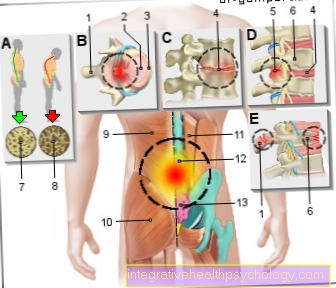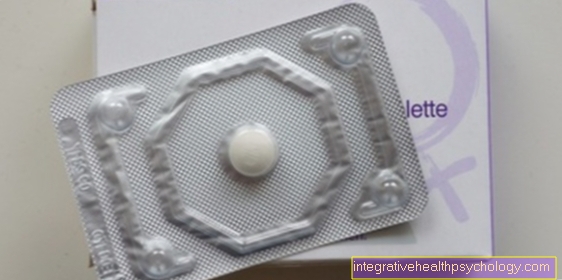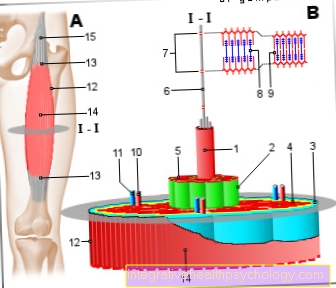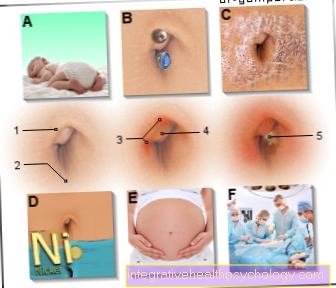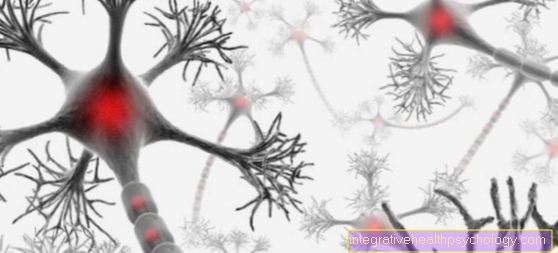Klinefelter Syndrome
What is Klinefelter Syndrome?
Klinefelter syndrome occurs in about every 750th man. It is one of the most common congenital chromosomal diseases in which affected men have one too many sex chromosomes. They mostly have the karyotype 47XXY instead of the usual 46XY.

The double X in the set of chromosomes leads to a testosterone deficiency, which continues to cause typical symptoms of Klinefelter syndrome. Learn more about it.
Also read: What is Turner Syndrome?
What causes Klinefelter syndrome?
Klinefelter syndrome is not a condition that is passed on from parents to their children.
It arises rather accidentally due to a disturbance during meiosis. This creates sperm and egg cells. In meiosis, it is important that one chromosome is distributed between the male and female sperm cells. However, this is not the case with Klinefelter syndrome. Either the sperm or the egg have an extra X chromosome. During fertilization, this leads to one sex chromosome lying too many. This is also called chromosomal aberration. The clinical picture only manifests itself in men who mostly have the karyotype 47XXY instead of 46XY.
The additional X chromosomes lead to a testosterone deficiency, which has further consequences.
Read more about the cause of Klinefelter Syndrome at: Chromosome aberration - what is it?
Turner syndrome is a disease that is also based on an altered number of chromosomes. Read more about this at: Turner Syndrome
Is Klinefelter Syndrome Hereditary or Contagious?
The Klinefelter syndrome is a congenital chromosomal disease. The cause of the disease is a disturbance during the maturation of the sperm and egg cells - also called meiosis. The chromosomes are not distributed exactly evenly, so a sperm or egg contains an extra X chromosome.
Klinefelter syndrome is not a disease that is passed on from parents to children. It arises by chance. So it is neither hereditary nor contagious.
You might also be interested in: Hereditary genetic diseases
These symptoms could indicate Klinefelter syndrome
The typical symptoms that occur in Klinefelter syndrome are caused by a lack of testosterone. It usually looks like this:
-
Small testicles: Often an undescended testicle first occurs in infancy, which can be unilateral or bilateral. Most adults with Klinefelter syndrome have small testicles.
Also read: Small testicle - what is the cause? -
Small penis: In addition, those affected usually have a small member. A lack of sperm can also lead to infertility.
You might also be interested in: Infertility in men -
Breast Enlargement: Affected men usually have breast enlargement. This is also called gynecomastia.
More about this topic can be found: Gynecomastia - The enlargement of the mammary gland in men
-
Changes in muscle and fat mass: testosterone supports muscle building. In Klinefelter syndrome, the low testosterone level results in reduced muscle mass in favor of fat mass. Affected people have increased fat deposits and tend to be overweight.
-
Tall stature: Due to the lack of testosterone, the growth plates close later, which leads to increased length. Affected are larger than average.
Further information on this topic can be found at: Tall stature - you should know that!
There are also some studies that suggest behavioral problems in men with Klinefelter syndrome. According to studies, around 10% of those affected would also be prone to autism or ADHD. In childhood there would be delayed language development as well as reading and learning problems.
Also read:
- What is Autism?
- These are the symptoms of ADHD
- Problems in school
Course of the disease in Klinefelter syndrome
As early as infancy, those affected often have undescended testicles, a small limb and muscle weakness. Language development is usually delayed. In school children there can be learning and reading difficulties. In adolescence there is usually a delayed onset of puberty, breast growth and strong growth in length. Adults can also have erectile dysfunction and impotence. In addition, if left untreated, obesity can develop with the development of diabetes mellitus 2 and vascular diseases.
Diagnosis of Klinefelter Syndrome
Klinefelter syndrome can be diagnosed in the womb by examining the amniotic fluid or taking a sample from the placenta. The diagnosis can then be made using a blood sample in which the chromosome set is examined. However, a human genetic report is required for this.
You might also be interested in: Examination of the amniotic fluid
This is how Klinefelter syndrome is treated
Klinefelter syndrome cannot be treated from the root cause. The disturbance during meiosis cannot be reversed.
However, since most of the symptoms of Klinefelter's syndrome are due to low testosterone levels, therapy consists of supplying testosterone from outside. This is also known as testosterone substitution. Depending on what is preferred, testosterone can be applied as a gel and plaster or as an injection every one to three months. Testosterone substitution is usually started with the onset of puberty and must be continued for life.
Read more on this topic at: Treatment of testosterone deficiency
According to studies, men with Klinefelter syndrome are often vitamin D deficient. It is advisable to regularly check and balance the vitamin D level.
We also recommend: Vitamin D deficiency - you should know that!
Since those affected may have language development disorders or reading and learning difficulties, speech therapy and support at school should be sought accordingly.
Also read: When does speech therapy make sense?
Prognosis of Klinefelter Syndrome
There is no cure for Klinefelter syndrome. Therapy via testosterone administration should therefore be lifelong, because without treatment the life expectancy of those affected can be reduced.
The reason given is that the Klinefelter syndrome is more associated with other diseases such as diabetes mellitus, vascular diseases and bone loss.
Also, men with Klinefelter syndrome have a twenty times higher risk of developing breast cancer than other men.
Also read: How do you recognize breast cancer in men?
Therefore, it makes perfect sense to consume artificial testosterone for life. The symptoms of Klinefelter syndrome are often only mild.
In addition, those affected can often lead an independent life through appropriate language support such as speech therapy and support at school.
You might also be interested in: Problems at school - what can help?
You can find out more about lifelong testosterone substitution at: Everything about testosterone deficiency



